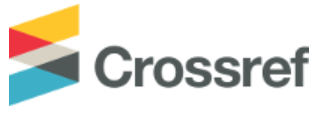Comparison and Prediction of Data Mining Models to Determine the Classification of Family Planning Program User Status
Abstract
Data mining is the process of analyzing a sample to determine the best performing algorithm. An easy way to extract information or insights from large amounts of data is by using the techniques involved in data mining. There are several methods of classification which can be used to determine the level of a certain acuity. In Indonesia, family planning program is the most common program in the government to control population growth. A decision tree, a logistic regression, a naive Bayes model, and a gradient boosted model are used in this study. To perform classification family planning program User Status in Mangunharjo sub-district, the variable used is the wife's age, age of the youngest child, stages of prosperous family, and number of children. The training data comparison testing is 70:30. This study was tested by using the AUC value and t-test. The best value for accuracy is the Decision Tree algorithm with a percentage of 94.2% and an AUC value of 0.939. From the results of this test, it can be concluded that for a comparison of all tests performed on the dataset, the Decision Tree algorithm model can be said to be better than the other three algorithm models.
Keywords
Full Text:
PDFReferences
Abdullah, M. (2015). Metode penelitian kuantitatif (1st Editio). Aswaja pressindo.
Agarwal, S. (2014). Data mining: Data mining concepts and techniques. In Proceedings - 2013 International Conference on Machine Intelligence Research and Advancement, ICMIRA 2013. https://doi.org/10.1109/ICMIRA.2013.45
Badan Pusat Statistik. (2021). Hasil sensus penduduk 2020. https://www.s.go.id/pressrelease/2021/01/21/1854/hasil-sensus-penduduk-2020.html
Friedman, J. H. (2001). Greedy function approximation: A gradient boosting machine. Annals of Statistics, 1189–1232. https://doi.org/10.1214/aos/1013203451
Han, J., Pei, J., & Kamber, M. (2011). Data mining: concepts and techniques. Waltham, MA: Elsevier.
Hosmer Jr, D. W., Lemeshow, S., & Sturdivant, R. X. (2013). Applied logistic regression (Vol. 398). Hoboken, NJ: John Wiley & Sons.
Hui, L., Li, S., & Zongfang, Z. (2013). The model and empirical research of application scoring based on data mining methods. Procedia Computer Science, 17, 911–918. https://doi.org/10.1016/j.procs.2013.05.116
Jadhav, S. D., & Channe, H. P. (2016). Comparative study of K-NN, naive Bayes and decision tree classification techniques. International Journal of Science and Research, 5(1), 1842–1845. https://doi.org/10.21275/v5i1.nov153131
Larose, D. T., & Larose, C. D. (2014). Discovering knowledge in data: an introduction to data mining (Vol. 4). Hoboken, NJ: John Wiley & Sons.
Melinda, V., Primartha, R., Wijaya, A., & Jambak, M, I. (2020). Optimization naive bayes algorithm using particle swarm optimization in the classification of breast cancer. Sriwijaya International Conference on Information Technology and Its Applications (SICONIAN 2019), pp. 362–369. https://doi.org/10.2991/aisr.k.200424.055
Natekin, A., & Knoll, A. (2013). Gradient boosting machines, a tutorial. Frontiers in Neurorobotics, 7(21), 1-21. https://doi.org/10.3389/fnbot.2013.00021
Rokach, L., & Maimon, O. (2014). Data Mining With Decision Trees: Theory and applications (2nd Ed). Toh Tuck Link, Singapore: World Scientific.
Romero, C., Ventura, S., Pechenizkiy, M., & Baker, R. Sj. (2010). Handbook of educational data mining. Boca Raton, Florida: CRC press.
Sumathi, S., & Sivanandam, S. N. (2006). Introduction to data mining and its applications. Heidelberg: Springer Berlin. https://doi.org/10.1007/978-3-540-34351-6
Suyanto, D. (2017). Data Mining untuk klasifikasi dan klasterisasi data. Bandung: Informatika Bandung.
DOI: https://doi.org/10.31002/ijome.v4i2.5841
Refbacks
- There are currently no refbacks.
Copyright (c) 2022 Indonesian Journal of Mathematics Education

This work is licensed under a Creative Commons Attribution-NonCommercial-ShareAlike 4.0 International License.

This work is licensed under a Creative Commons Attribution-NonCommercial-ShareAlike 4.0 International License.
Indexed by:
ISSN: 2654-3907 (print) | 2654-346X (online)
Jalan Kapten Suparman No.39, Magelang, Jawa Tengah, Indonesia 56116
Phone (0293) 364113 Fax. (0293) 362438
Website : http://jurnal.untidar.ac.id/index.php/ijome









